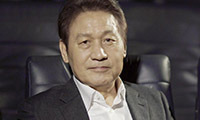Anti-Americanism and Future of USFK
▶ By Scott Snyder
This is not the first time that anti-American sentiment has surfaced in South Korea, nor is it surprising that such a complex relationship as that which exists between the United States and South Korea might involve occasional periods of tension as part of close cooperation. However, the recent response to problems related to U.S. force presence, suggests a need to step back and carefully examine what lies behind it. In the process, both sides should carefully, patiently, and flexibly weigh their own respective national interests before over-reacting to incidents that, under ordinary circumstances, should be possible to resolve without major difficulties.
The previous wave of anti-American sentiment in Korea accompanied the 1988 Olympics and Koreas transition from authoritarianism to democracy. Much anti-Americanism of that time was also bottled up anti-authoritarianism that finally spewed out in the form of antagonism toward perceived American backing for the Chun Doo-whan dictatorship. A second aspect of anti-Americanism at that time was related to feelings that international media criticisms of South Korea during the Olympics somehow meant that the outside world had failed to give South Koreans well-earned credit for the progress of its economic and political transformation.
The current round of anti-American demonstrations is, in some respects, different from the 1980s because it seems to be so highly focused on opposition to the U.S. military in South Korea. Some American analysts have noted with concern that, unlike past anti-American demonstrations, recent incidents have involved expressions of physical violence toward individual members of U.S. forces in Korea, in contrast to past willingness to separate individual Americans from criticism of U.S. government policies.
In some cases, this violence is motivated by the widespread Korean misperception that U.S. troop presence is so essential to U.S. global strategy that we would never leave, when in fact, the situation is quite the opposite. Most American servicemen, particularly those with families, would prefer not to come to Korea, where the quality of life on the bases is low and the cost of living is high. But they come to fulfill the mission of defending Korea from external aggression, and for decades, their sacrifice has generally, been met with appreciation by most Koreans.
Imagine, however, what a shock it would be to be assigned to provide for the defense of a foreign people, only to encounter insensitive verbal abuses or physical injury from those whom you are sent to protect. This new element is particularly dangerous because it has the potential to unleash political forces that would sour the broader relationship between our two countries, possibly sacrificing the opportunity to pursue shared economic and political interests. Neither Congress nor the American public will tolerate physical danger to American troops from "friends" preceived as ungrateful for their sacrifice.
There is also one important similarity between the current atmosphere and the situation as it existed in the late 1980s. Just as the transition to democracy occasioned reflection about international perceptions of Korea at that time, Koreasrecovery from the financial crisis, OECD membership in the club of industrialized economies, relative optimism concerning Koreaաs future regional and global roles, and the summit with its symbolism of the two Koreas on the threshold of a new era of reconciliation have also occasioned both reflection and a feeling that Koreas economic might should be matched by greater autonomy in security affairs.
Just as the last major revisions to the U.S.-ROK security relationship were initiated in the early 1990s in recognition of Korea s changed political and security situation, I believe that South Koreans are once again seeking both symbolic affirmation of the progress and consolidation of political and economic development during the past decade as well as a concrete American expression of recognition and support for Korean reunification.
Specifically, Koreans are insisting through negotiations on revision of the Status of Forces Agreement (SOFA) that it is no longer acceptable to suggest that South Korean political and judicial institutions are less well-developed than those in other industrialized countries with a U.S. troop presence such as Germany and Japan. More broadly, Koreans want to know that U.S. regional security interests do not stand in the way of progress in the inter-Korean relationship.
It should be possible for the U.S. government to affirm South Koreas progress in consolidating its own political institutions and to respond to concrete changes in the security situation on the Korean peninsula in concert with substantive progress in inter-Korean relations; however, working out the appropriate adjustments in the relationship will require intensive political consultations at the highest levels. The task of initiating a comprehensive review and adjustment of the U.S.-ROK security relationship in recognition of new developments between the two Koreas, should be a top priority for the next administration in Washington when it takes office early next year.
As we have seen in the Philippines and other places around the world, the United States has its own strategic interests, but its foreign-based troops are guests, not imperial manifestations of colonial hegemony, a point that was reaffirmed by President Clinton during his speech to U.S. troops in Okinawa last month. The ultimate decision about whether U.S. forces remain in Korea depends on the perceptions of the Korean people and their government regarding how best to address Korea s own security needs; the relationship itself will remain viable only to the extent that both Americans and South Koreans perceive joint coordination in pursuit of their common interests as valuable.
The writer is the Korea Representative of the Asia Foundation and author of Negotiating on the Edge: North Korean Negotiating Behavior. The opinions expressed above are personal views and do not necessarily represent those of the Asia Foundation and The Korea Times as well.
스마터리빙
more [ 건강]
[ 건강]이제 혈관 건강도 챙기자!
[현대해운]우리 눈에 보이지 않기 때문에 혈관 건강을 챙기는 것은 결코 쉽지 않은데요. 여러분은 혈관 건강을 유지하기 위해 어떤 노력을 하시나요?
 [ 건강]
[ 건강]내 몸이 건강해지는 과일궁합
 [ 라이프]
[ 라이프]벌레야 물럿거라! 천연 해충제 만들기
 [ 건강]
[ 건강]혈압 낮추는데 좋은 식품
[현대해운]혈관 건강은 주로 노화가 진행되면서 지켜야 할 문제라고 인식되어 왔습니다. 최근 생활 패턴과 식생활의 변화로 혈관의 노화 진행이 빨라지고
사람·사람들
more많이 본 기사
- 세계 곳곳서 ‘美규탄’ 시위…마두로 아들 “거리로 나와달라”
- 美 ‘유령 특수부대’ 델타포스
- 베네수엘라, 세계 최대 매장량이라는데…국제유가도 영향받나
- ‘국민 배우’ 안성기 별세…69년 연기 인생 마침표
- 美, 베네수 부통령에 압박 “마두로와 다른 선택하길”
- [美 마두로 축출] 마두로 베네수엘라 대통령, 5일 법정 첫 출석
- 코미디부터 예술영화까지… ‘천의 얼굴’로 스크린 누빈 안성기
- 이부진 호텔신라 사장 NBA 중계화면에…아들과 함께 미국서 휴가
- 故김영인 누구?..故송도순 이어 별세, 슬픔에 빠진 방송계
- [CES 2026] 6억달러 새단장한 우아한 전시장…내부엔 지게차 동원 개막준비
- 아이유♥변우석·지성·신하균·유연석.. ‘2026 MBC 연기대상’ 벌써 치열하다
- [美 마두로 축출] 뉴욕 구치소 수감된 마두로… “좋은 밤이에요” 인사도
- 美, 직접통치아닌 압박통한 정책개입 가닥… “함포외교”
- 여야 새해도 극한대치… ‘종합·통일교특검’ 법사위 첫 戰場 예고
- [美 마두로 축출] 미 곳곳서 반전시… 1
- 젤렌스키 “이달 내로 종전안 놓고 美 정상회의 희망”
- 임재범, 은퇴 발표 “박수칠 때 떠나겠다”
- 20kg 빼고 아이돌 외모 되찾더니..강남, 기안84와 북극 마라톤 도전
- 李대통령 “中, 한반도 평화 파트너…… 1
- 영종도 인천공항 잇는 3번째 다리 내일 개통…요금 2천원
- [CES 2026] 우유 꺼내고 수건 개는 로봇…LG ‘가사 해방’ 속도
- 국힘에 ‘살려달라’고 문자 메시지?…이혜훈측 “전혀 사실 아냐”
- [美 마두로 축출] 트럼프 ‘서반구 패권’ 구상 본격화하나…중남미 긴장 고조
- 美 경제석학 “韓 원화가치 매우 저평가…향후 회복할 것”
- [美 마두로 축출] 한밤 안가 급습 ‘확고한 결의’ 작전… “침실서 끌어내”
- [美 마두로 축출] 갈라진 지구촌…쏟… 1
- ‘연프 중독’ 고준희, 눈 성형 고백에 풍자 “과연 눈만 했을까?” 의심
- 北, 탄도미사일 발사… ‘마두로 축출’ 파장 속 무력시위
- [美 마두로 축출] 트럼프, 두번째 중대 군사작전…北이 받을 메시지는
- 김병기, 경찰에 줄고발… ‘아들 취업청탁·편입시도’ 진술도
- “韓 독립혼 상징”…재조명되는 현대차그룹 상하이 임정 보존활동
- ‘종합선수권 10연패’ 차준환, 3연속 올림픽행 “꿈의 무대... 모든 것 보여주고 오겠다”
- [美 마두로 축출] 루비오 국무장관, 베네수 부통령에 “마두로와 다른 선택하길”
- [美 마두로 축출] 트럼프 “베네수엘라 부통령이 잘하면 미군 주둔 안해”
- [美 마두로 축출] 체포된 마두로 부부, 뉴욕 도착…다음주 재판받을 전망
- ‘에릭♥’ 나혜미, 두 아들과 일상 공개..짱구 볼살+붕어빵 눈매 “우리 강아지들”
- “황희찬 시즌 최고의 퍼포먼스” 극찬, 웨스트햄전 1골·1도움 폭발... 울버햄프턴 ‘EPL 20경기 만에 감격 첫 승’
- BBC “입소문서 시작한 K-뷰티, 전세계 스킨케어 루틴으로”
- [美 마두로 축출] 서반구·마약·석유…트럼프 작전배경의 세 키워드
- 해넘긴 미중정상회담 합의문 발표…무역합의 불확실성↑
- [美 마두로 축출] 트럼프 “베네수엘라 부통령이 잘하면 미군 주둔 안해”
- [美 마두로 축출] 유엔 안보리, 5일 긴급회의…베네수 소집요청
- ‘왕따 주행 논란’ 억울함 푼 김보름 “말로 담기 어려운 시간 지나...” 현역 은퇴 선언
- 美, 마두로 전격 체포·압송…트럼프 “정권이양까지 베네수 통치”
- 李대통령, 오늘 국빈 방중 출국…비핵화·한한령 ‘돌파구’ 주목
- 슈 “임효성과 부부 싸움..연락처 차단·집 비밀번호 바꿔”
- ‘밀라노행 확실시’ 피겨 차준환, 올림픽 2차 선발전 쇼트 1위... 프리 스케이팅 예정
- [美 베네수 공격] 유엔총장 “국제법… 1
- 中관영매체 “李대통령 중요시점 방중…… 1
- 트럼프 “안전한 정권이양 때까지 미국이 베네수엘라 통치”(종합)
1/5지식톡

-
 미 육군 사관학교 West Poin…
0
미 육군 사관학교 West Poin…
0https://youtu.be/SxD8cEhNV6Q연락처:wpkapca@gmail.comJohn Choi: 714-716-6414West Point 합격증을 받으셨나요?미 육군사관학교 West Point 학부모 모…
-
 ☝️해외에서도 가능한 한국어 선생님…
0
☝️해외에서도 가능한 한국어 선생님…
0이 영상 하나면 충분합니다!♥️상담신청문의♥️☝️ 문의 폭주로 '선착순 상담'만 진행합니다.☎️ : 02-6213-9094✨카카오톡ID : @GOODEDU77 (@골뱅이 꼭 붙여주셔야합니다…
-
 테슬라 자동차 시트커버 장착
0
테슬라 자동차 시트커버 장착
0테슬라 시트커버, 사놓고 아직 못 씌우셨죠?장착이 생각보다 쉽지 않습니다.20년 경력 전문가에게 맡기세요 — 깔끔하고 딱 맞게 장착해드립니다!장착비용:앞좌석: $40뒷좌석: $60앞·뒷좌석 …
-
 식당용 부탄가스
0
식당용 부탄가스
0식당용 부탄가스 홀세일 합니다 로스앤젤레스 다운타운 픽업 가능 안녕 하세요?강아지 & 고양이 모든 애완동물 / 반려동물 식품 & 모든 애완동물/반려동물 관련 제품들 전문적으로 홀세일/취급하는 회사 입니다 100% …
-
 ACSL 국제 컴퓨터 과학 대회, …
0
ACSL 국제 컴퓨터 과학 대회, …
0웹사이트 : www.eduspot.co.kr 카카오톡 상담하기 : https://pf.kakao.com/_BEQWxb블로그 : https://blog.naver.com/eduspotmain안녕하세요, 에듀스팟입니다…
케이타운 1번가
오피니언
 손영아 문화 칼럼니스트 / YASMA7 대표
손영아 문화 칼럼니스트 / YASMA7 대표 [손영아의 문화산책] ‘슈만의 연가’… 170년 전 멈춘 시간, 끝나지 않은 사랑
 김재천 서강대 국제대학원 교수
김재천 서강대 국제대학원 교수 [김재천 칼럼] 2026년, 미·중 대타협은 가능할까
 조지 F·윌 워싱턴포스트 칼럼니스트
조지 F·윌 워싱턴포스트 칼럼니스트 [조지 F. 윌 칼럼] AI 투자 붐이 걱정된다면?… 역사적 맥락을 보라
 이희숙 시인·수필가
이희숙 시인·수필가 [금요단상] 차가운 길, 이불 한 장의 온기
 한영일 / 서울경제 논설위원
한영일 / 서울경제 논설위원 [만화경] 33년만에 퇴역하는 장보고함

[왈가 왈부] 이혜훈 ‘정말 널 죽였으면’ 폭언, 장관직 수행 가능할까요
 정숙희 논설위원
정숙희 논설위원샴페인, 마지막 날과 첫날을 위하여
 조지 F·윌 워싱턴포스트 칼럼니스트
조지 F·윌 워싱턴포스트 칼럼니스트 [조지 F. 윌 칼럼] 저무는 2025년에 안도의 한숨
 김동찬 시민참여센터 대표
김동찬 시민참여센터 대표 [미국은 지금] 책임 있는 자본 없으면 커뮤니티 미래도 없다
1/3지사별 뉴스

뉴욕시 첫 무슬림 시장 맘다니 취임
미국 최대도시이자 경제 수도로 꼽히는 뉴욕시의 첫 무슬림·남아시아계 시장이자 스스로를 민주사회주의자라고 부르는 조란 맘다니 신임 뉴욕시장이 새…
뉴욕시민 기대수명 82.6세⋯팬데믹 이전 회복

건국 250주년 워싱턴 모뉴먼트 라잇쇼
워싱턴 DC 내셔널 몰 중심에 위치한 워싱턴 모뉴먼트(Washington Monument)가 화려한 불빛으로 장식됐다. 지난 31일 새해 카운…
“소확행<작지만 확실한 행복> 즐겨요”

[美 마두로 축출] 트럼프 “베네수엘라 부통령이 잘하면 미군 주둔 안해”
도널드 트럼프 대통령은 베네수엘라 측이 미국이 바라는 대로 행동하는 한 미군이 베네수엘라에 주둔하지 않을 것이라고 말했다고 뉴욕포스트가 3일 …
중부 캘리포니아 ‘한인 이민사’ 나왔다
오늘 하루 이 창 열지 않음 닫기 




















































.png)


댓글 안에 당신의 성숙함도 담아 주세요.
'오늘의 한마디'는 기사에 대하여 자신의 생각을 말하고 남의 생각을 들으며 서로 다양한 의견을 나누는 공간입니다. 그러나 간혹 불건전한 내용을 올리시는 분들이 계셔서 건전한 인터넷문화 정착을 위해 아래와 같은 운영원칙을 적용합니다.
자체 모니터링을 통해 아래에 해당하는 내용이 포함된 댓글이 발견되면 예고없이 삭제 조치를 하겠습니다.
불건전한 댓글을 올리거나, 이름에 비속어 및 상대방의 불쾌감을 주는 단어를 사용, 유명인 또는 특정 일반인을 사칭하는 경우 이용에 대한 차단 제재를 받을 수 있습니다. 차단될 경우, 일주일간 댓글을 달수 없게 됩니다.
명예훼손, 개인정보 유출, 욕설 등 법률에 위반되는 댓글은 관계 법령에 의거 민형사상 처벌을 받을 수 있으니 이용에 주의를 부탁드립니다.
Close
x